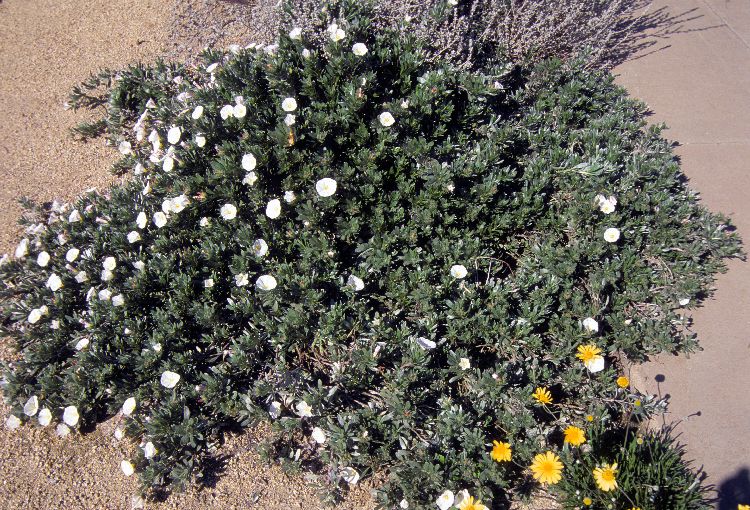
Convolvulus cneorum
Silver Bush Morning Glory
The mounding form of Bush Morning Glory works well as a groundcover. Attractive trailing from a container. Canopy coverage: 7 square feet.
[Read More]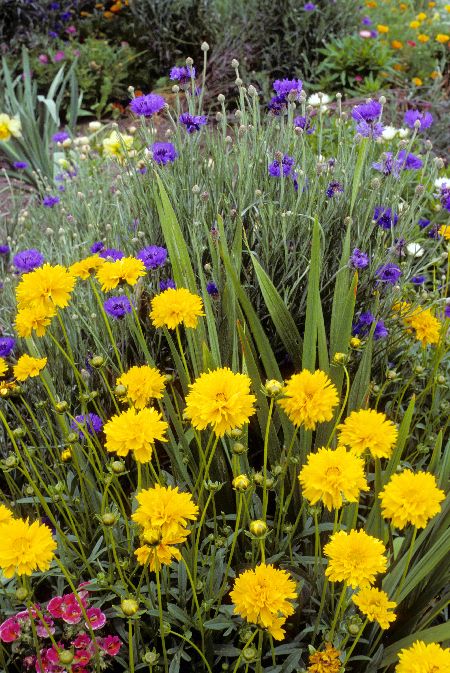
Coreopsis lanceolata
Lanceleaf Coreopsis
The profuse yellow flowers of Lanceleaf Coreopsis put on quite the show during spring and summer. Flowers are good for cutting, so enjoy them indoors in bouquets as well as in the landscape. Canopy coverage: 3 square feet.
[Read More]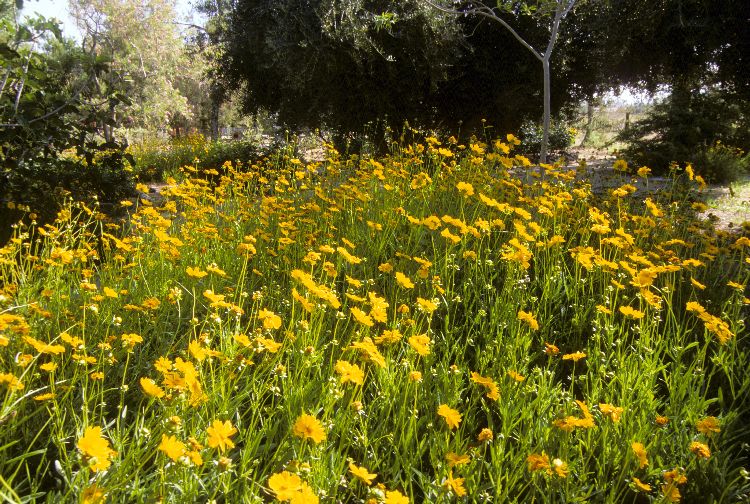
Coreopsis verticillata
Sunray Coreopsis
Sunray Coreopsis is blessed with a long, colorful bloom period. 'Zagreb' is an improved selection. Accepting of drought. Canopy coverage: 3 square feet.
[Read More]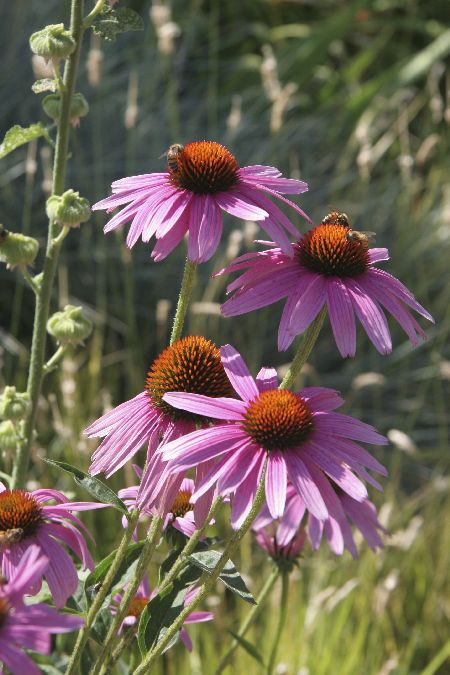
Echinacea purpurea
Purple Coneflower
The flowers of Purple Coneflower are daisylike and reach up to 4 inches across. They are definite eye-catchers, particularly when they bloom on top of stems 3 feet or more high. Consider it a rough-textured, but easy-to-grow perennial. Canopy coverage: 3 square feet.
[Read More]Epilobium canum garrettii
Hummingbird Trumpet
Hummingbird Trumpet is a colorful, low-growing subshrub (small shrub) that can also serve as a groundcover. Ideal for a naturalistic garden. Strong blooming period comes on late in the season when color is not as common so it is more appreciated. It may be sold as Zauschneria. 'Orange Carpet' is an improved selection. Canopy coverage: 13 square feet.
[Read More]Eriogonum umbellatum
Sulphur Flower
Sulphur Flower grows as a mounding mat to 1 foot high or less. It can be variable in appearance. Useful for erosion control, plants drape and cascade down rocky slopes. Tiny yellow flowers form fragrant clusters. Canopy coverage: 7 square feet.
[Read More]Eschscholzia californica
California Poppy
This wildflower is very popular—likely the most popular wildflower, period. California Poppy is a shortlived perennial most often grown as an annual. It is known to naturalize in many regions of California and the Southwest. Plant seeds where you want plants to grow in the fall.
[Read More]Euphorbia polychroma
Cushion Spurge
Cushion Spurge is so-named due to its rounded, mounding growth that reminds one of a chair cushion. Its eye-catching, sulphur yellow color comes from the bracts, modified leaves, that surround the insignificant greenish flowers. Accepts some shade but better appearance in full sun. Sap may irritate skin. Canopy coverage: 3 square feet.
[Read More]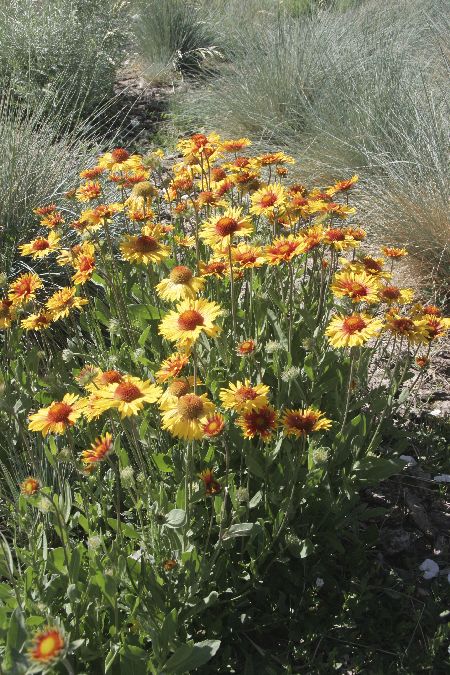
Gaillardia aristata
Native Blanket Flower
The pinwheel-shaped flowers of Native Blanket Flower are yellow and maroon. They are easy to grow from seed sown in spring or fall and are excellent in wildflower mixes. Canopy coverage: 3 square feet.
[Read More]Gaura lindheimeri
Gaura
Gaura grows in an open form with long, slender, arching branches. Plants die down in winter with cold temperatures, then regrow in spring. Canopy coverage: 13 square feet.
[Read More]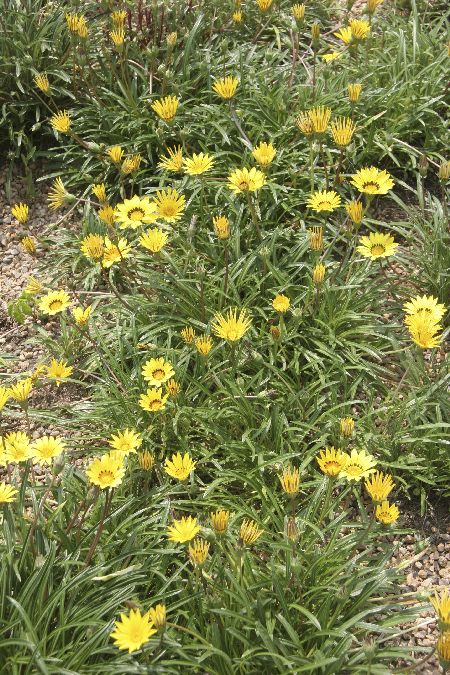
Gazania linearis
Treasure Flower, Gazania
Long bloom period where adapted with large flowers that hug the ground. Not always long-lived. Avoid overwatering. 'Colorado Gold' is an improved selection that is more tolerant to cold. Canopy coverage: 3 square feet.
[Read More]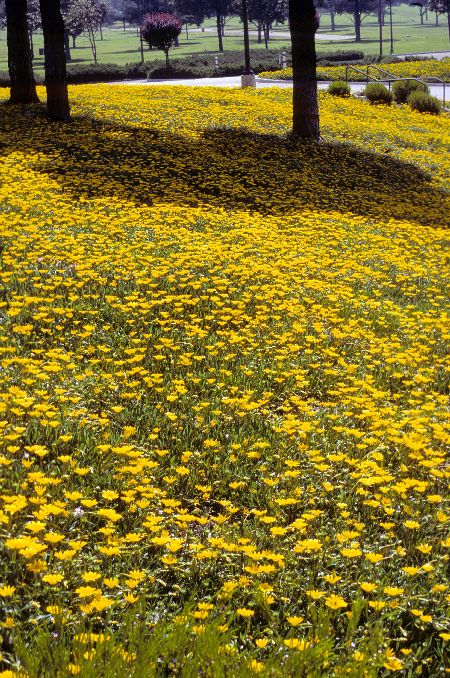
Gazania rigens leucolaena
Trailing Gazania
The flower colors of Trailing Gazania are gold, yellow and orange. Many selections are available. Not always long-lived. Avoid overwatering. Gazania linearis 'Colorado Gold' is a related species that is more tolerant to cold. Canopy coverage: 3 square feet.
[Read More]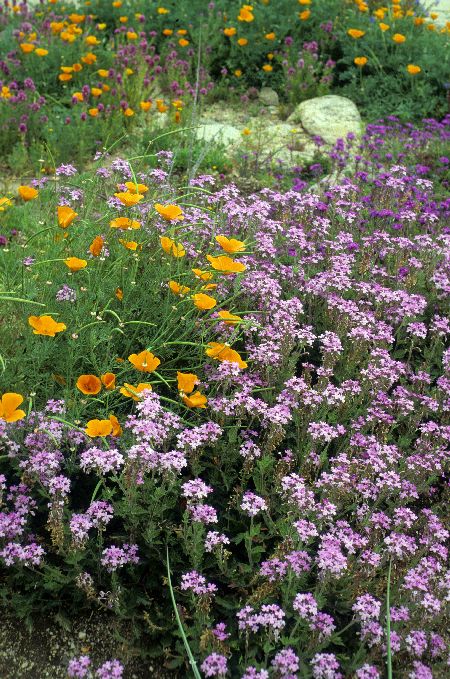
Glandularia gooddingii
Goodding Verbena
Goodding Verbena is typically short-lived but reseeds readily to continue future plantings. Excellent choice as a fast cover for bare ground. Canopy coverage: 3 square feet.
[Read More]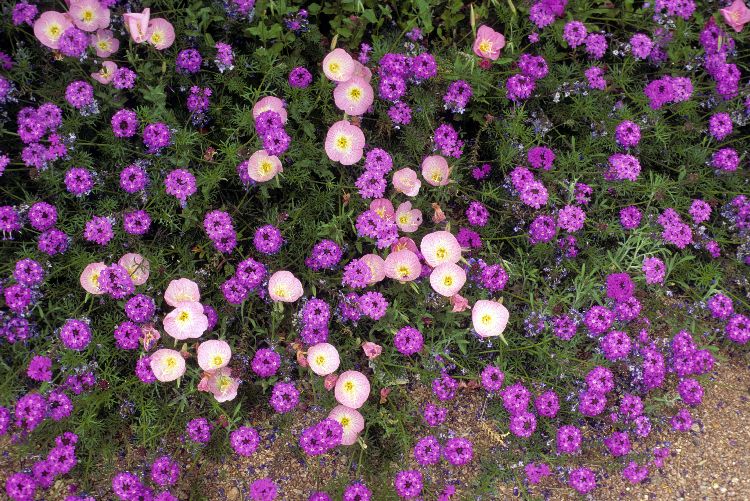
Glandularia pulchella
Moss Verbena
This flowering Verbena has a long blooming season—spring into fall. Fast-growing, fine-textured groundcover for color. Canopy coverage: 7 square feet.
[Read More]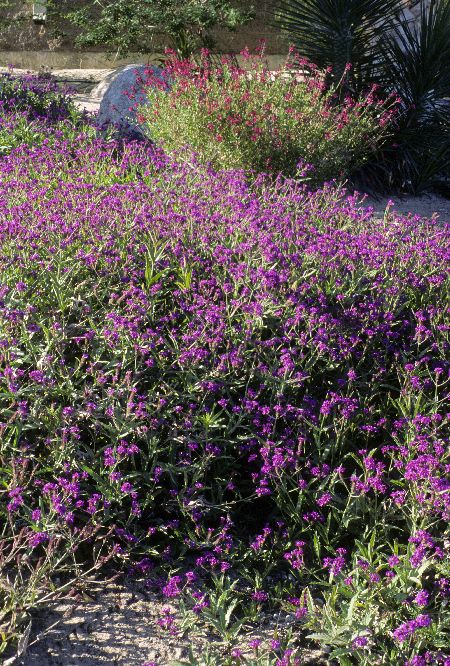
Glandularia rigida
Sandpaper Verbena
Consider this Verbena an easy-care groundcover, although it can be short-lived. Common name due to rough texture of leaves. Little care required; cut back dead or unsightly branches and past-prime flowers. Canopy coverage: 7 square feet.
[Read More]Gutierrezia sarothrae
Snakeweed
The typical form of Snakeweed is a small, rounded shrub. When planted in a mass, it makes a suitable naturalistic groundcover, blending well with desert landscapes. It reseeds with ease, to the point that it can become invasive, so be prepared to control plantings if moisture is available. Canopy coverage: 3 square feet.
[Read More]Helenium autumnale
Sneezeweed
The "sneeze" part of the name Sneezeweed is due to its ages-old use as a snuff, not allergenic pollen. Tall growing, place at the back of the border. Daisylike flowers are yellow but sometimes take on a bronzy hue. Plant parts are poisonous. Canopy coverage: 3 square feet.
[Read More]Helianthus maximilianii
Maximilian Sunflower
Maximilian Sunflower is a perennial typically grown as an annual. Start from seeds in the spring. It grows quite tall, to 6 feet or more, so place at back of plantings or border. Produces profuse numbers of daisylike flowers up to 3 inches across. Canopy coverage: 3 square feet.
[Read More]Hemerocallis hybrids
Daylily
Daylilies are available in a wide range of plant forms and types, from evergreen, semievergreen or deciduous. Flower colors and sizes are available in selections too numerous to mention. Check locally. Canopy coverage: 7 square feet.
[Read More]Heuchera sanguinea
Coral Bells
Flowers of Coral Bells bloom above leaves on delicate spikes. It's a good, low-growing understory plant, particularly for a woodland effect. In addition to this species, there are many improved selections available in a range of leaf and flower colors. Check locally. Canopy coverage: 1 square foot.
[Read More]Hibiscus moscheutos
Rose Mallow
Rose Mallow is a shrubby perennial that can reach up to a towering 8 feet high. However, most hybrids fall into the 4-foot-high range. Very large flowers up to 12 inches across in a range of bright colors is a primary attraction. Dies to the ground in winter. Canopy coverage: 13 square feet.
[Read More]